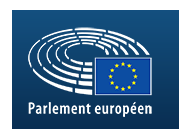Document type: Written answer from the European Commission
Authors: question: Manuela Ripa (Greens/EFA). Answer: Mr Sinkevicius on behalf of the European Commission.
Question: EU-wide positive list (exotic pet trade)
In 2022, the Petitions Committee voted to ask the Commission to regulate the exotic pet trade through an EU-wide positive list.
In November of that same year, Parliament adopted a resolution on improving EU regulations on wild and exotic animals to be kept as pets in the European Union through an EU positive list.
The Commission briefly mentioned a positive list in the revised EU action plan against wildlife trafficking, while in the May 2022 meeting of the Agriculture and Fisheries Council, 19 Member States showed support for a position paper explicitly mentioning captive breeding and animals taken from the wild. Currently, national positive lists regulating what animals can be kept as pets vary between Member States.
In view of the above:
1. With Member States adopting their own positive lists, does the Commission believe an EU-wide positive list would help prevent internal market distortions?
2. What is the Commission’s opinion on a feasibility study to determine the need for an EU-wide positive list, and more specifically, an assessment of a positive list under Article 114 of the Treaty on the Functioning of the European Union in order to maintain the functioning of the internal market?
3. Does the Commission agree that the scope of such a feasibility study should also include animals from captive breeding facilities?
Answer: n line with the revised EU Action Plan against Wildlife Trafficking the Commission will carry out an exploratory study on the need for, added value and feasibility of a science-based EU-wide positive list for animals kept as pets.
The Commission plans to launch the tender procedure for the study before the summer. The study should be underpinned by the best available scientific data and should address the intertwined policy objectives related to the free movement of goods within the EU internal market, animal welfare, public health, including risk of zoonoses, invasive alien species, protection of biodiversity and wildlife trade.
Where relevant, it will also include considerations related to animals bred in captivity.






